Estimated reading time: 9 minutes
Are you a cat owner wondering about your feline friend’s digestion process? It typically takes between 10 to 20 hours for a cat to fully digest its food. In this article, we’ll explore the intricacies of how long it takes for cats to digest their meals, including factors that can affect this timeline.
Prepare to embark on an informative journey through the fascinating world of feline digestion.
Key Takeaways
- On average, it takes cats between 10 to 20 hours to fully digest their food.
- Factors that can affect digestion time in cats include the size of the meal, type of food, composition of the diet, age of the cat, health conditions, activity level, eating habits, and hydration.
- Digestive problems in cats may include acute gastroenteritis, colitis, diarrhea, constipation, and pancreatitis. It is important to monitor your cat for signs of these issues and seek veterinary help if necessary.
- To maintain good digestive health in cats: ensure they stay hydrated by providing fresh water at all times; feed them a balanced diet with appropriate portions and regular feeding intervals.
Understanding Feline Digestion
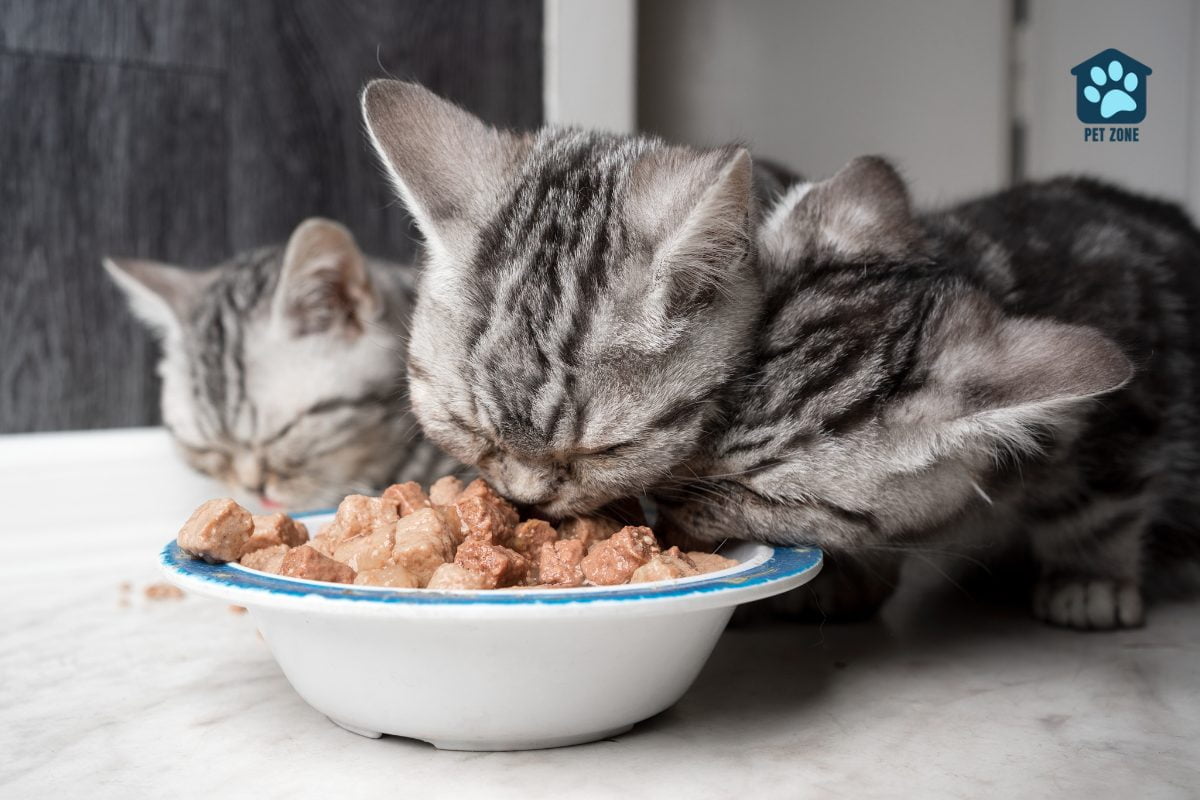
The digestive system of a cat
A cat’s digestive system is a well-run machine. It starts with the mouth and teeth, where food first enters. But unlike humans, cats have no enzymes in their saliva to break down food.
The next stop is the esophagus, which moves the food to the stomach. This is where the real work begins! The stomach releases acids that help break down what your cat has eaten. After this, it’s onto the intestines for more processing before finally leaving as waste between 12-24 hours later.
The digestion process
In a cat’s body, the digestion process is unique and complex.
- The food does not start breaking down in the mouth. Cats do not have enzymes in their saliva to do this.
- The path to digestion begins in the esophagus. This long tube moves food from the mouth to the stomach.
- In the stomach, acids mix with food. These acids are made by a cat’s body. They grind up the food and turn it into soup-like liquid.
- After doing its job, the stomach passes this liquid onto the intestines.
- The intestines absorb useful parts from this liquid. These parts help your cat stay strong and healthy.
How Long Does It Take for Cats to Digest Food?
Average digestion time
A healthy cat takes around 10 to 20 hours to digest food. This time starts when the cat eats its meal until the waste leaves its body. Cats take more time compared to humans who only need around 7 to 8 hours.
The size of a cat’s body is also a factor in this slow digestion speed. To help, it is good for cats to have small meals every four or six hours throughout the day. These smaller meals go well with their natural rhythm and how their bodies break down food.
Factors that may affect digestion time
Here are some factors that can affect how long it takes for a cat to digest food:
- Size of the meal: Larger meals may take longer to digest compared to smaller ones.
- Type of food: Wet cat food is easier for cats to digest than dry cat food.
- Composition of the diet: A balanced and easily digestible diet can promote better digestion.
- Age of the cat: Kittens have a faster metabolism, so their digestion time may be shorter than adult cats.
- Health conditions: Digestive disorders and certain health conditions can slow down the digestion process.
- Activity level: Cats that are more active tend to have a faster digestion rate.
- Eating habits: Cats that eat too fast or gulp down their food may experience slower digestion.
- Dehydration: Lack of proper hydration can lead to slower digestion in cats.
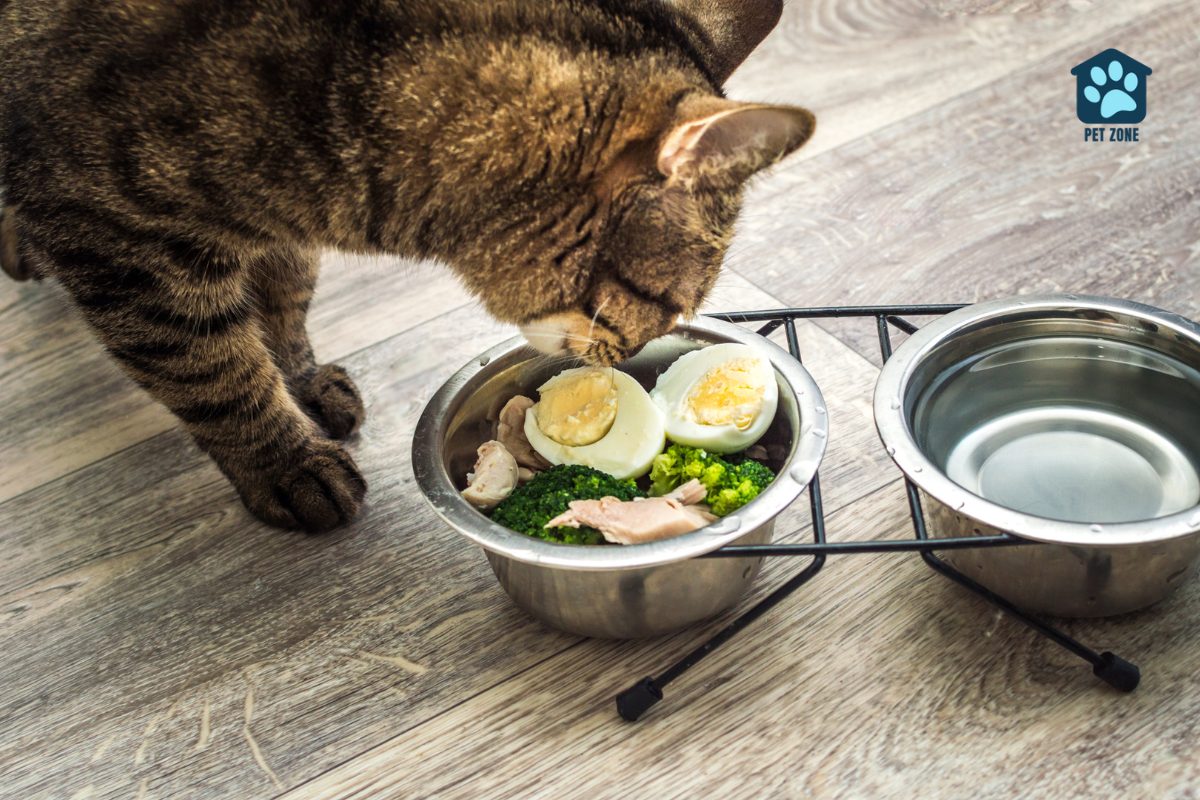
Signs of Digestive Problems in Cats
Hairballs
When cats groom themselves, they often swallow loose hairs, which can accumulate in their stomachs over time. These hairs don’t break down easily and can form into compact clumps or balls. When the hairballs become too large, they can cause blockages in the cat’s digestive system, leading to various symptoms such as vomiting, constipation, loss of appetite, and even weight loss.
To help prevent hairball formation, regular grooming and brushing sessions can assist in reducing the amount of loose hair that a cat ingests. Additionally, specialized hairball control diets or the use of hairball preventive cat treats can also aid in managing this issue.
Acute gastroenteritis
Acute gastroenteritis in cats is a condition that affects the digestive system and can cause symptoms like vomiting, loss of appetite, diarrhea, abdominal pain, and dehydration. It can be caused by infections from bacteria or viruses, parasites, medications, or changes in their diet.
Digestive disorders are common in cats and usually last for a few days before resolving on their own. However, some cats may need ongoing management to keep their digestion healthy.
If your cat has acute gastroenteritis, it’s recommended to withhold food for 12-24 hours to help reduce symptoms. Prompt intervention is important to prevent complications and promote recovery.
Colitis
Colitis is a condition that can affect cats and is often associated with digestive problems. It is characterized by symptoms such as vomiting (sometimes with blood), diarrhea (which may also contain blood), loss of appetite, weight loss, and lethargy.
Colitis can be caused by Inflammatory Bowel Disease (IBD), which is a common disorder in cats. When the intestines are involved, chronic diarrhea is a common symptom of IBD. This disease can have a significant impact on a cat’s digestion, appetite, and overall quality of life.
Diarrhea
Diarrhea in cats is a common sign of digestive problems. It can last for a few days and usually goes away on its own. However, if your cat’s diarrhea lasts longer than 24-48 hours, it may indicate a more serious issue that requires veterinary attention.
Soft stools or diarrhea can be caused by food allergies or other gastrointestinal disorders. If your cat experiences chronic diarrhea, it’s important to have them checked by a vet to determine the underlying cause and provide appropriate treatment.
Constipation
Constipation is a common digestive issue that can affect cats. It occurs when there is a buildup of feces in the colon, making it hard for them to have regular bowel movements. Cats suffering from constipation may have difficulty passing stool or not produce any stools at all for more than 24 hours.
Some causes of constipation in cats include dehydration, pain, and problems with the colon’s movement. If left untreated, chronic constipation can lead to complications like megacolon, where the colon becomes enlarged and loses its ability to contract effectively.
If you notice your cat having trouble with their bowel movements, it is essential to consult with your veterinarian for proper diagnosis and treatment options.
Pancreatitis
Pancreatitis is a condition that can affect cats’ digestion. It happens when the pancreas becomes inflamed and can even start to digest its own tissue. This inflammation disrupts the digestive process, making it more difficult for cats to break down their food properly.
The pancreas produces enzymes that are needed for digestion, but when it’s inflamed, these enzymes may not be produced in the right amount. This can lead to symptoms that resemble other gastrointestinal disorders in cats.
Pancreatitis is most common in middle-aged to older cats, but younger ones can also develop it. It’s important to be aware of the clinical signs of pancreatitis because they can look like other digestive issues in cats.
Tips for Maintaining Good Digestive Health in Cats
Importance of hydration
Keeping your cat properly hydrated is crucial for maintaining their digestive health. Water plays a vital role in the digestion process, particularly when cats consume dry food. It helps to break down the food and move it through their small intestine smoothly.
Additionally, hydration supports organ function, including the kidneys, ensuring they can remove waste effectively. By staying hydrated, your cat’s body can replace fluids lost through urine and poop.
Furthermore, proper hydration promotes good circulation, temperature regulation, and nutrient transportation within their body. So make sure to provide fresh water for your feline friend at all times to support their overall well-being and digestion.
Balanced diet and feeding frequency
Feeding your cat a balanced diet and following the right feeding frequency is essential for maintaining good digestive health. Here are some important tips:
- Provide a high-quality cat food: Choose a dry or wet food that is specifically formulated for their age, size, and any specific dietary needs they may have. Look for brands that meet the Association of American Feed Control Officials (AAFCO) standards.
- Measure their portions: It’s important to measure your cat’s food to ensure they’re getting the right amount of nutrients without overeating. Use a kitchen scale or measuring cup to determine the appropriate portion size based on their weight and activity level.
- Feed them at regular intervals: Cats should eat at least two meals each day, about 12 hours apart. This helps maintain a consistent digestion schedule and prevents overeating or hunger-related issues.
- Avoid free-feeding dry food: While free-feeding can be acceptable for cats who exercise self-control, it’s not recommended for all cats. It can lead to weight gain in cats who like to snack frequently.
- Be mindful of water intake: Cats need access to fresh water throughout the day to stay hydrated and aid in digestion. Make sure they always have access to clean water and consider wetting their dry food with water if they prefer it that way.
- Work with your veterinarian: If you have any concerns about your cat’s digestive health or need guidance on choosing the right food, consult with your veterinarian. They can provide personalized advice based on your cat’s specific needs.
Working with your veterinarian
To maintain good digestive health in your cat, it’s important to work closely with your veterinarian. They can provide expert advice and guidance tailored specifically to your cat’s needs.
Your vet may recommend a high-fiber diet to promote healthy digestion or suggest withholding food for a short period of time to rest the digestive system. They can also help identify and treat any underlying digestive issues that your cat may be experiencing.
Regular check-ups with your veterinarian will ensure that you’re taking the necessary steps to keep your cat’s digestive system healthy and functioning properly.
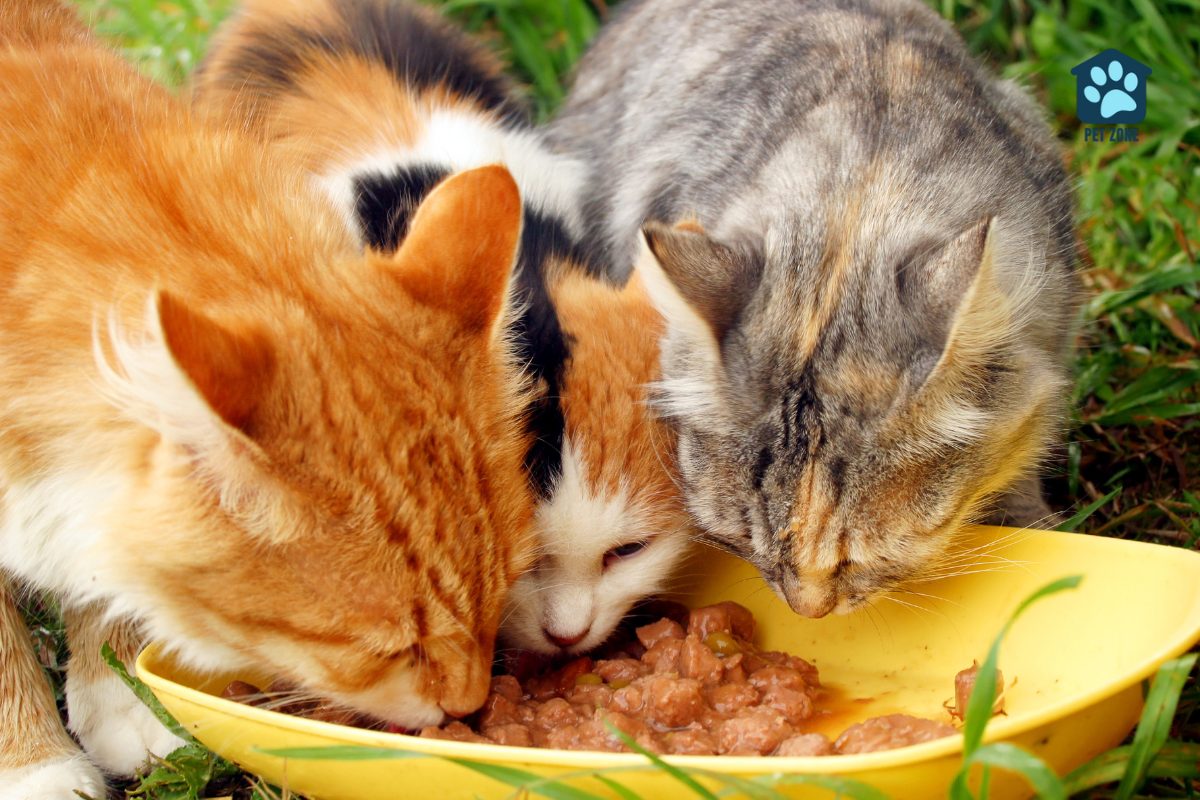
Conclusion
It takes between 10 and 20 hours for a cat to digest its food. Some estimates suggest it could take up to 24 hours. The digestive process in cats is slower than in larger pets.
It’s important to monitor your cat if they ingest something unusual or potentially harmful and to take your cat to the vet if you have concerns about their digestion.
As an Amazon Associate I earn from qualifying purchases.
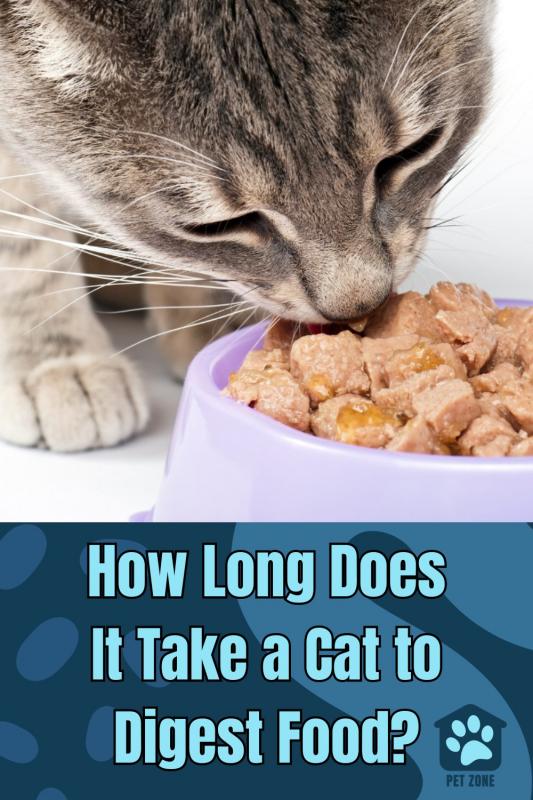


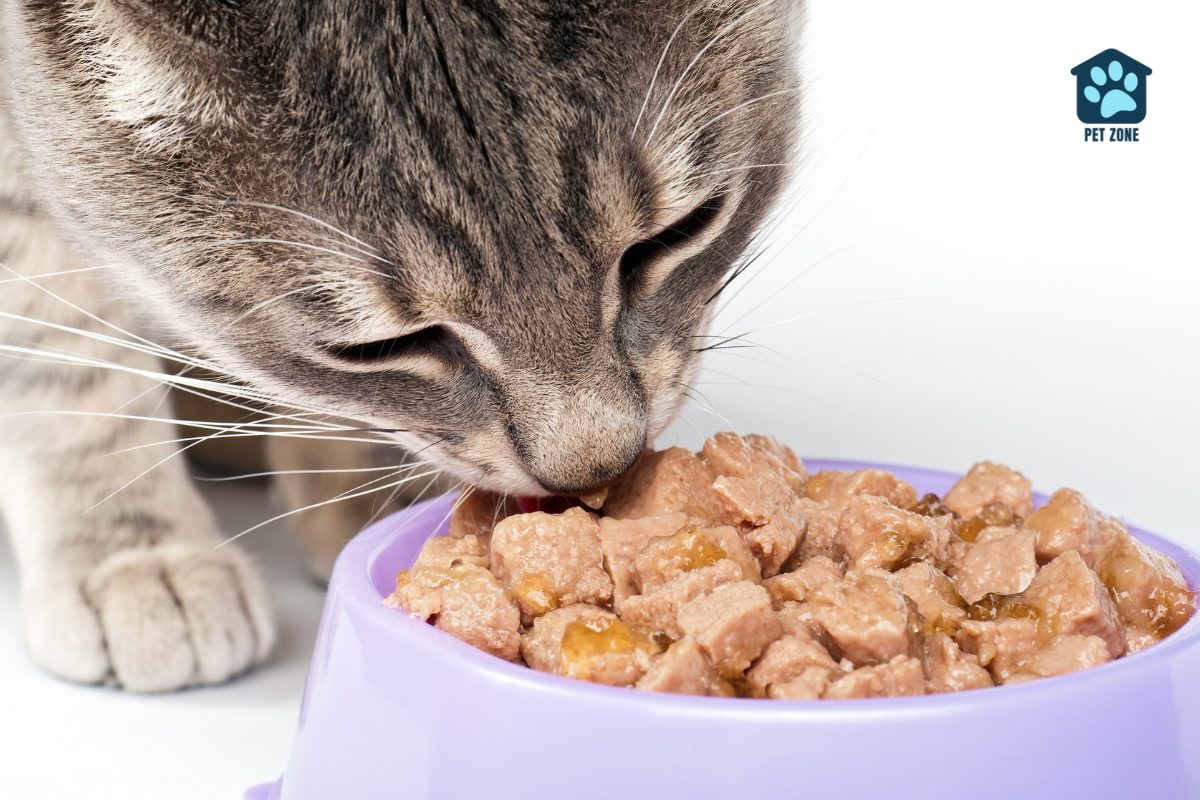
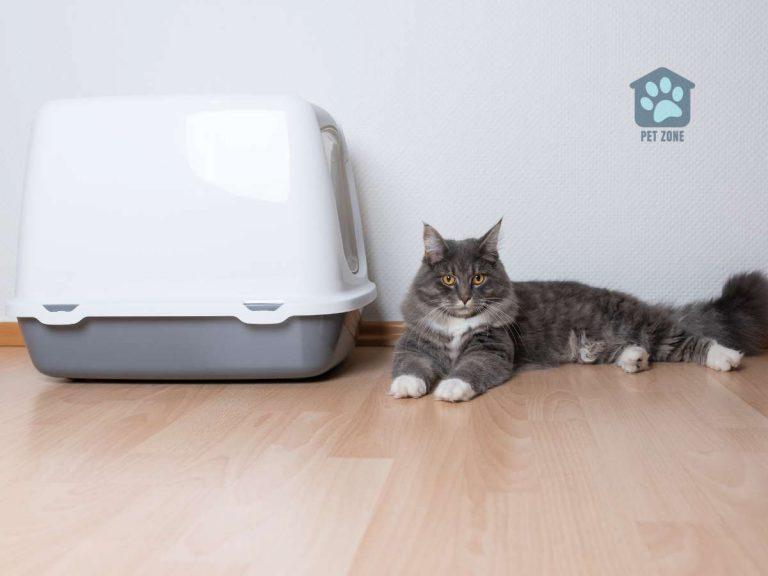
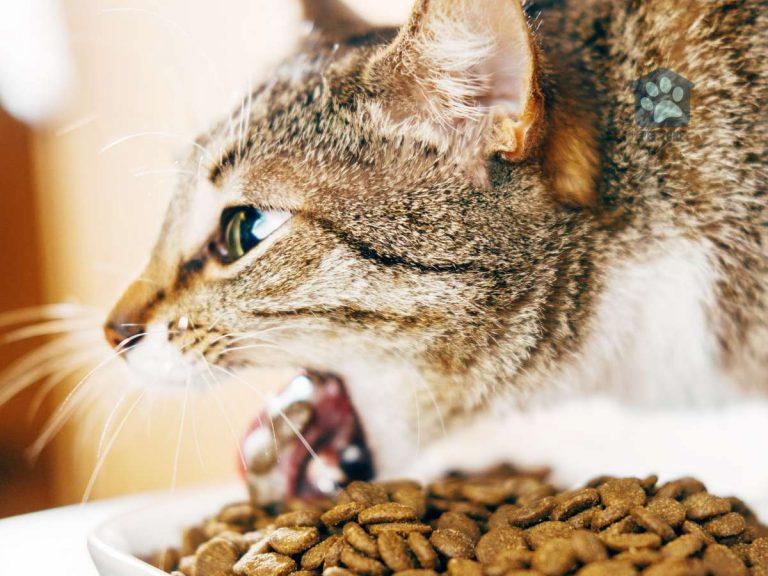
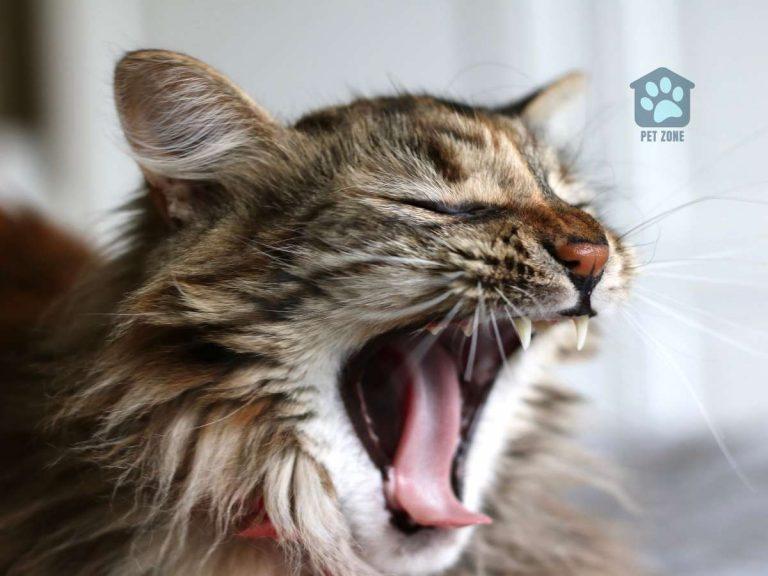
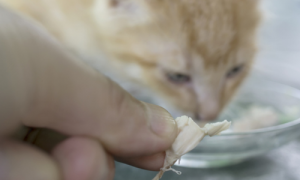
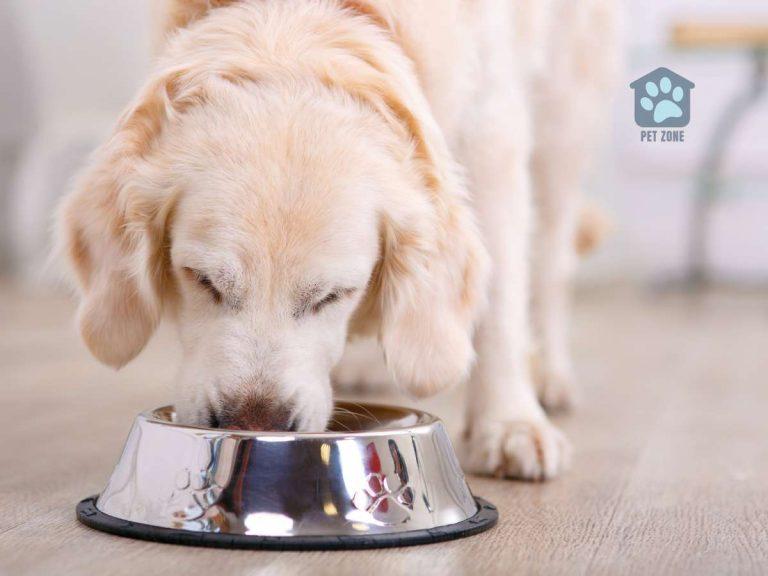
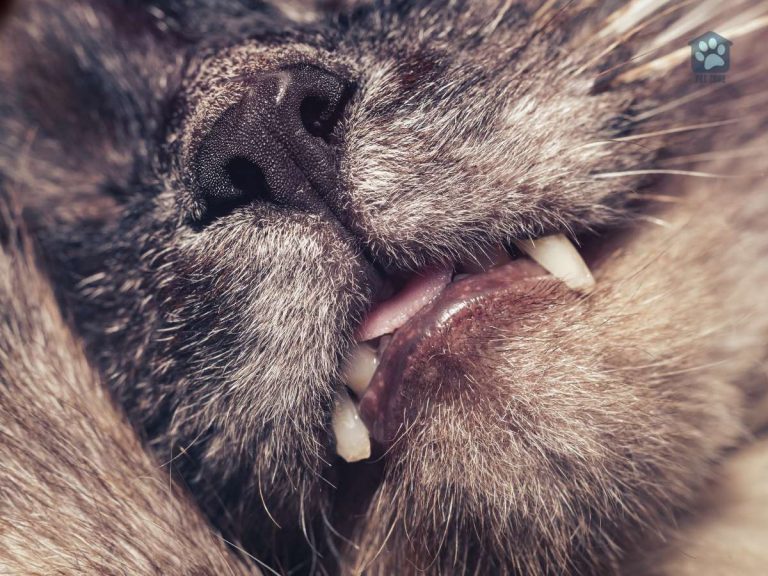
That’s really interesting that it takes 10 to 20 hours or even up to 24 hours for cats to digest food. We’ve always only fed our cats wet food or raw frozen food, no kibble or dry food. They are 16-year-old cats and doing well with some age-related health issues. I think a healthy diet is so important for cats.
I just saw that cat’s bowl and food and realized how sad my cats must be looking at their dry cat food from the store….